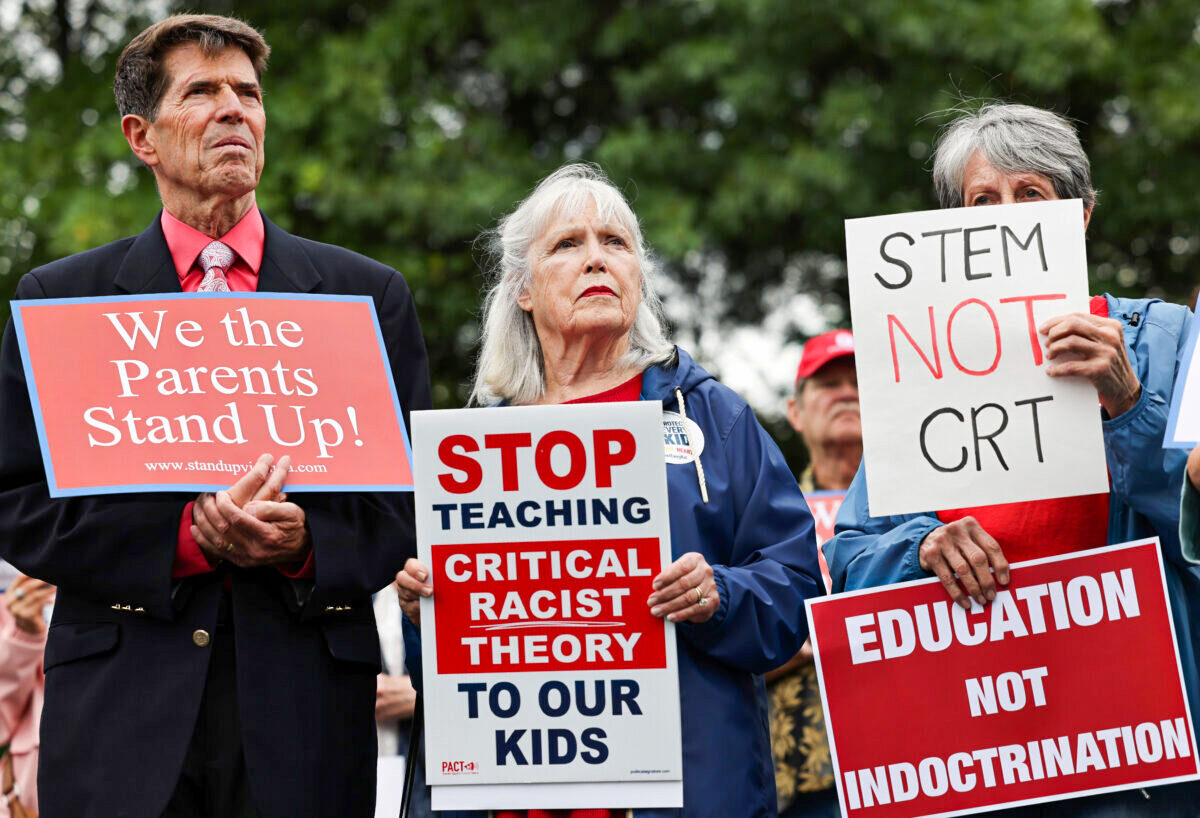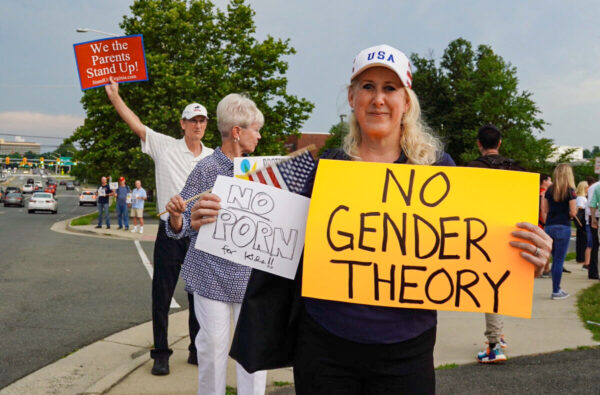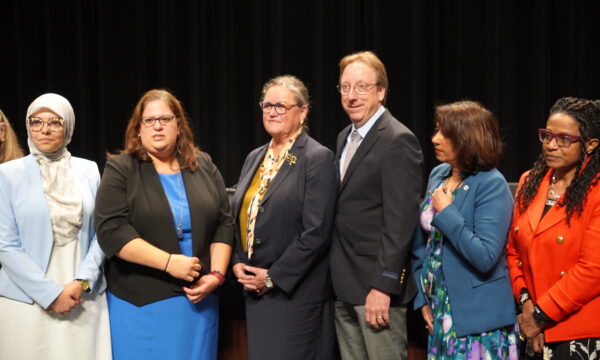


FAIRFAX COUNTY, Va.—The newly released Advanced Placement (AP) African American Studies coursework has become the new front to fighting critical race theory (CRT) in schools in America.
The focal point is whether the AP course—taught in high schools for students to earn college credits—is a vehicle for CRT, a Marxist framework that views issues through a racial lens and America as systematically racist.
The AP course triggered national attention last month when Florida rejected the draft version. In a Jan. 20 letter (pdf) to the College Board, which is in charge of developing and approving AP courses, Florida Department of Education Commissioner Manny Diaz Jr. wrote, “As presented, the content of this course is inexplicably contrary to Florida law and significantly lacks educational value.”
In a tweet on the same day, Diaz listed Florida’s concerns about the AP draft curriculum, including “Black queer studies,” “Movements for Black Lives,” and authors associated with CRT. According to a law enacted last April, Florida bans teaching CRT in schools and workplace training programs. Although blocked in colleges and workplaces by a court injunction, the ban is effective in K-12 schools.
Consequently, the College Board removed the names of many writers associated with CRT, “Black queer,” and “Black feminism” from the official curriculum released on Feb. 1. It added “Black conservatism” as a sample project topic. It also said the Black Lives Matter movement was optional. To be used before the 2023–2024 school year, this pilot course is still banned in Florida.
In a statement issued on Feb. 11, the College Board denied changing the curriculum because of Florida’s rejection and revealed that the January letter was a second rejection letter from Florida; the first was received last September.
“Like all new AP courses, AP African American Studies is undergoing a rigorous, multi-year pilot phase, collecting feedback from teachers, students, scholars, and policymakers,” Jerome White, director of communications for the College Board, previously told The Epoch Times in an emailed statement.
The first pilot of the AP course is offered in the current school year in 60 high schools nationwide. The first AP African American Studies exam will be available in the spring of 2024. First announced in August 2022, the draft coursework was reported in the media last September.
Following Florida’s lead, four Republican-led states—Arkansas, North Dakota, Mississippi, and Virginia—said their education departments would review the course framework according to state laws. Gov. Glenn Youngkin of Virginia and Gov. Sarah Huckabee of Arkansas issued an executive order on their first day of office, banning CRT in K-12 schools.
A state Republican representative in Texas introduced a bill on Feb. 3, requiring all AP courses to comply with state laws. If enacted, the requirement will be effective on Sept. 1.
Meanwhile, two Democrat-led states—Illinois and New Jersey—emphasized the need for the AP course. In a Jan. 26 tweet, Illinois Gov. JB Pritzker said, “We reject any change to AP African American Studies in order to appease extremists like the Florida Governor and his Republican allies.” Then on Feb. 14, New Jersey Gov. Phil Murphy expanded the AP course offering from one school in his state this school year to 26 in the next.
On Feb. 22, four school board members in Fairfax County Public Schools (FCPS)—Virginia’s largest school district with over 180,000 students—wrote a letter to Youngkin and Virginia Education Secretary Aimee Guidera, calling for “prompt approval” of the AP African American Studies Course.
“As elected school board members who believe diversity is one of Virginia’s greatest strengths, we urge you not to impede the teaching of AP African-American Studies,” they wrote.
Youngkin’s call to review the AP course is based on his executive order 1, which he signed to ban CRT in K-12 schools.
In an emailed statement, Youngkin’s spokeswoman Macaulay Porter told The Epoch Times, “After numerous reports about draft course content, the governor asked the Education Secretariat to review the College Board’s proposed AP African American Studies course as it pertains to Executive Order 1.”
Guidera also responded to the FCPS school board members in a statement that the AP African American Studies course review was a regular action to “ensure that our students are being taught how to think, and not what to think.”
“The letter from a subset of the Fairfax County School Board is confusing, given that this review is a standard procedure to ensure the course aligns to our academic standards and teaches all history,” she added. “Our hope is that the College Board’s revisions to the pilot have addressed national concerns around the African American Studies pilot so that we can offer a college-level, rigorous course in Virginia’s schools. Neither Governor Youngkin nor I will apologize for having high expectations and taking the time to ensure that our course offerings prepare every Virginia student for success in life.”
AP course selections vary by state. For example, in Virginia, the selection of AP courses is decided by local school divisions.
FCPS told The Epoch Times that eight high schools in its division were set to offer the pilot AP course in the school year 2023–2024. “Running of the course at each school will depend on student enrollment,” wrote a spokesperson in an email.


